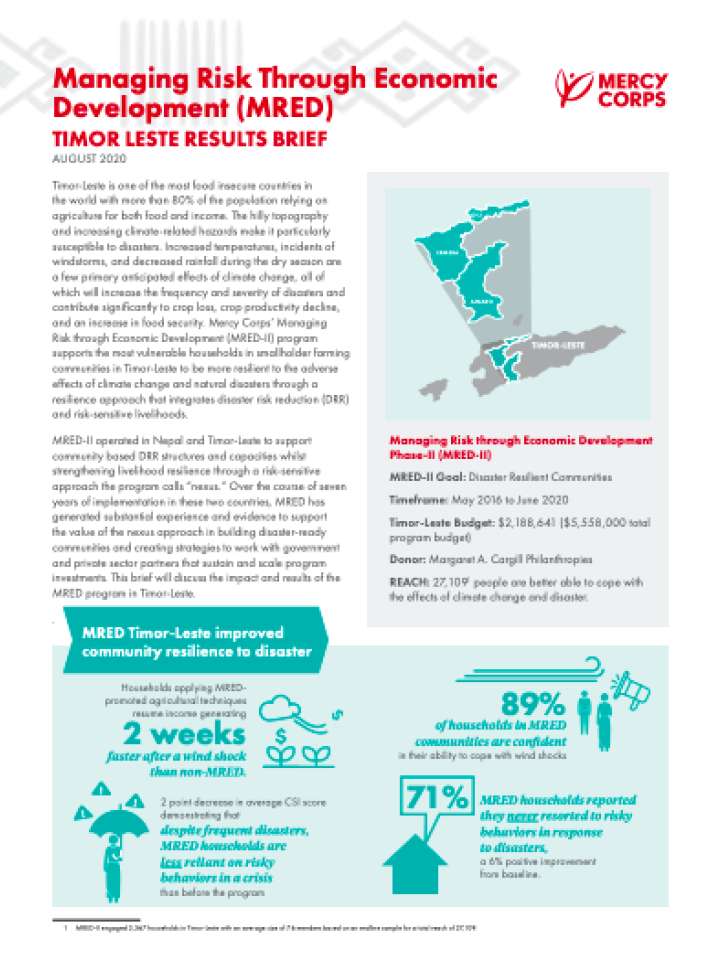Managing risk through economic development (MRED): Timor-Leste results brief
This brief will discuss the impact and results of the MRED program in Timor-Leste.
MRED improved community resilience to disasters and climate change:
- MRED households reduced use of risky behaviors by 2 points on the coping strategies index (CSI) despite an increase in disasters. This small but statistically significant improvement suggests that MRED households have improved food security in the face of disaster. A 95% of households never had to reduce female consumption so males could eat more.
- Households who practiced MRED nexus and climate sensitive gardening resumed income-generating activities after a wind shock half a month more quickly than non-MRED households. By the end of the program 72% of community members were participating in nexus interventions.
- MRED is building capacities to help families through disasters.
MRED has helped communities build confidence in their ability to respond to and recover from disasters
- 89% of MRED households are confident they can cope with future disasters.
- 42.5% of people in MRED communities received early warning communications, compared with 9% at baseline. In addition, 99.6% reported confidence in the EWS message received.
MRED had also a role to play in improvig food security:
- 2178 farmers engaged in nexus disaster—or climate-sensitive livelihood interventions including permagardens (PGs) and keyhole gardens (KHGs) that serve to bolster food security for vulnerable families while supplementing their incomes.
For more results, please consult the results brief.
MRED-II operated in Nepal and Timor-Leste to support community based DRR structures and capacities whilst strengthening livelihood resilience through a risk sensitive approach the program calls “nexus”. Over the course of seven years of implementation in these two countries, MRED has generated substantial experience and evidence to support the value of the nexus approach to build disasterready communities and strategies to work with government and private sector partners that sustain and scale program investments.
Explore further
